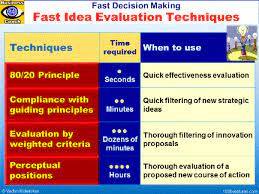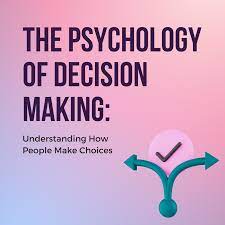Making Choices in Life: A Guide to Empowered Decision-Making
Life is a journey filled with countless choices. From the smallest everyday decisions to life-altering ones, the choices we make shape our experiences and define who we are. However, making choices can sometimes feel overwhelming and daunting. How can we navigate through the sea of options and make decisions that align with our values and aspirations? Here is a guide to empowered decision-making that can help you navigate the path of life with confidence.
- Reflect on your values and goals: Before making any decision, take a moment to reflect on your core values and long-term goals. What truly matters to you? What do you aspire to achieve? By understanding your values and goals, you can filter out options that don’t align with what you truly want in life.
- Gather information: Informed decision-making requires gathering relevant information about the choices at hand. Research, seek advice from trusted sources, or consult experts in the field. The more knowledge you have, the better equipped you’ll be to make an informed choice.
- Consider pros and cons: List down the potential advantages and disadvantages of each option available to you. Evaluate how each choice aligns with your values, goals, and priorities. This exercise will help you weigh the potential outcomes more objectively.
- Trust your intuition: Sometimes, our gut feeling provides valuable insights that rational analysis may overlook. Pay attention to your intuition when making decisions—it often taps into subconscious knowledge or feelings that can guide you towards what feels right for you.
- Embrace uncertainty: It’s important to acknowledge that not all decisions come with absolute certainty or guarantees of success. Embracing uncertainty allows us to step outside our comfort zones and grow as individuals. Remember that mistakes or setbacks are opportunities for growth and learning.
- Seek support: Don’t hesitate to seek support from friends, family, or mentors when faced with challenging decisions. Discussing your thoughts and concerns with others can provide fresh perspectives and valuable insights that may help clarify your own thinking.
- Take ownership of your decisions: Once you’ve made a choice, embrace it wholeheartedly. Take responsibility for the consequences, whether positive or negative. This sense of ownership empowers you to learn from your decisions and adapt as needed.
- Learn from past experiences: Reflect on past choices and their outcomes. What worked well? What could have been done differently? Learning from past experiences helps us refine our decision-making skills and make more informed choices in the future.
Remember, making choices in life is not about finding the “perfect” decision but rather about making the best decision with the information and resources available to you at any given moment. Trust yourself, stay true to your values, and embrace the journey of decision-making as an opportunity for growth and self-discovery. With practice, you’ll become more confident in navigating life’s choices, leading you towards a fulfilling and purposeful existence.
Navigating Life’s Crossroads: Answers to Your Top 4 Questions on Making Choices
- What are the 5 most important decisions in a person’s life?
- Why is it important to make the right choices in life?
- How do you make good life choices?
- Why is it that making choices in life is difficult?
What are the 5 most important decisions in a person’s life?
While every person’s life journey is unique, there are certain decisions that tend to have a significant impact on shaping one’s future. Here are five important decisions that often have far-reaching consequences:
- Career Choice: Selecting a career path is a crucial decision as it determines how you will spend a significant portion of your adult life. Consider your passions, skills, and interests when deciding on a career. It’s essential to find fulfillment and satisfaction in your chosen profession.
- Education: The decision to pursue higher education or vocational training can greatly influence your opportunities and future prospects. Choosing the right educational path can open doors to various career options and personal growth.
- Life Partner: Deciding whom to share your life with is a major decision that profoundly impacts your happiness and well-being. Choosing a compatible life partner involves considering values, compatibility, shared goals, and emotional connection.
- Financial Planning: Making sound financial decisions early in life sets the foundation for long-term financial stability. Planning for savings, investments, budgeting, and managing debt are all crucial choices that can shape your financial future.
- Lifestyle Choices: Decisions related to health, wellness, and personal habits significantly impact overall well-being. Choices such as maintaining a healthy diet, exercising regularly, managing stress levels, and prioritizing self-care contribute to long-term physical and mental health.
It’s important to note that these decisions are not set in stone; they can evolve over time as circumstances change or new opportunities arise. Flexibility and adaptability are key when navigating through these choices as life unfolds before you.
Ultimately, the most important decisions in one’s life are deeply personal and subjective. It’s crucial to trust yourself, consider your values and aspirations, seek advice from trusted sources if needed, and be open to learning from both successes and failures along the way.
Why is it important to make the right choices in life?
Making the right choices in life is crucial for several reasons:
- Personal fulfillment: When we make choices that align with our values, goals, and aspirations, we experience a sense of personal fulfillment. It allows us to live authentically and in harmony with ourselves, leading to a greater sense of happiness and contentment.
- Achieving goals: The choices we make directly impact our ability to achieve our goals. By making informed decisions that are in line with our aspirations, we increase the likelihood of reaching our desired outcomes and realizing our dreams.
- Self-growth and development: Making the right choices often involves stepping out of our comfort zones and embracing new experiences. It challenges us to learn, adapt, and grow as individuals. Each decision presents an opportunity for self-discovery, learning from mistakes, and developing valuable skills.
- Building positive relationships: Our choices can significantly impact our relationships with others. By making thoughtful decisions that consider the well-being of those around us, we foster trust, respect, and healthy connections with friends, family, colleagues, and communities.
- Creating a meaningful life: Our choices shape the overall trajectory of our lives. When we consistently make choices that align with our values and contribute to a greater purpose or cause beyond ourselves, we create a life filled with meaning and significance.
- Avoiding regrets: Making poor or uninformed choices can lead to regret later on in life. By taking the time to consider options carefully and make informed decisions based on available information, we minimize the chances of regretting our past choices.
- Impact on future opportunities: The choices we make today can have long-lasting effects on future opportunities that come our way. Making wise decisions positions us for success by opening doors to new possibilities while avoiding potential pitfalls or negative consequences.
Ultimately, making the right choices in life empowers us to lead fulfilling lives aligned with who we truly are while maximizing our potential for personal growth, happiness, and success. It allows us to shape our own destinies and create a life that reflects our values and aspirations.
How do you make good life choices?
Making good life choices is a process that involves careful consideration, self-reflection, and aligning your decisions with your values and goals. Here are some steps to help you make good life choices:
- Clarify your values: Understand what truly matters to you in life. Identify your core values and principles that guide your actions and decisions. When faced with choices, consider whether they align with your values.
- Set clear goals: Define your short-term and long-term goals. Having a clear vision of what you want to achieve will help you make choices that move you closer to those goals.
- Gather information: Seek out relevant information about the options available to you. Research, ask questions, and explore different perspectives. The more knowledge you have, the better equipped you’ll be to make informed decisions.
- Consider the consequences: Reflect on the potential outcomes of each choice. Think about both short-term and long-term consequences, as well as how they align with your values and goals. Consider the impact on various aspects of your life such as relationships, career, health, and personal growth.
- Trust your intuition: Listen to your inner voice or gut feeling when making decisions. Sometimes our intuition can provide valuable insights that rational analysis may overlook.
- Weigh pros and cons: Make a list of the advantages and disadvantages of each option available to you. Evaluate how each choice aligns with your values, goals, priorities, and potential risks involved.
- Seek input from trusted sources: Discuss your thoughts and concerns with people whose opinions you value and trust—friends, family members, mentors or professionals who have expertise in the relevant field. Their perspectives can provide valuable insights that may help clarify your own thinking.
- Embrace uncertainty: Recognize that not all decisions come with absolute certainty or guarantees of success. Embracing uncertainty allows for growth opportunities and learning from mistakes or setbacks along the way.
- Take responsibility: Once you’ve made a decision, take ownership of it. Embrace the consequences, learn from them, and adapt as needed. Taking responsibility empowers you to grow and make better choices in the future.
- Learn from experience: Reflect on past choices and their outcomes. Assess what worked well and what could have been done differently. Learning from your experiences will refine your decision-making skills over time.
Remember, making good life choices is an ongoing process. It requires self-awareness, continuous learning, and adaptability. Trust yourself, stay true to your values, and be open to growth and new possibilities.
Why is it that making choices in life is difficult?
Making choices in life can be difficult for various reasons. Here are a few common factors that contribute to the challenge of decision-making:
- Fear of making the wrong choice: The fear of making a mistake or regretting a decision can paralyze us from taking action. We may worry about the potential consequences and the impact they could have on our lives.
- Overwhelm from too many options: In today’s world, we are often bombarded with numerous choices, which can lead to decision fatigue and analysis paralysis. When faced with an abundance of options, it can be challenging to determine which one is the best fit for us.
- Uncertainty about future outcomes: Making decisions involves predicting future outcomes, and uncertainty about what lies ahead can make decision-making daunting. We cannot predict with certainty how things will unfold, which adds an element of risk and makes it harder to choose confidently.
- Conflicting priorities and values: Sometimes, we may find ourselves torn between different priorities or conflicting values. It becomes challenging to make a choice when our desires or beliefs seem to be pulling us in different directions.
- Limited information or knowledge: Lack of information or understanding about the available options can hinder decision-making. Without access to relevant data or insights, it becomes difficult to assess the potential risks and benefits associated with each choice.
- Pressure from external factors: External pressures, such as societal expectations, family influence, or cultural norms, can add complexity to decision-making. Balancing personal desires with external expectations can create inner conflict and make choices more challenging.
- Long-term implications: Some decisions have long-lasting consequences that may impact our lives for years to come. The weight of these long-term implications can make decision-making feel overwhelming as we strive to make choices that align with our future goals and aspirations.
It’s important to recognize that making choices is a natural part of life’s journey, and it’s normal to feel uncertain or hesitant at times. By understanding the factors that make decision-making difficult, we can develop strategies to overcome challenges and approach choices with more clarity and confidence.




